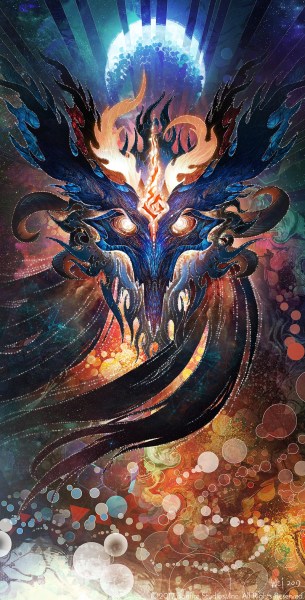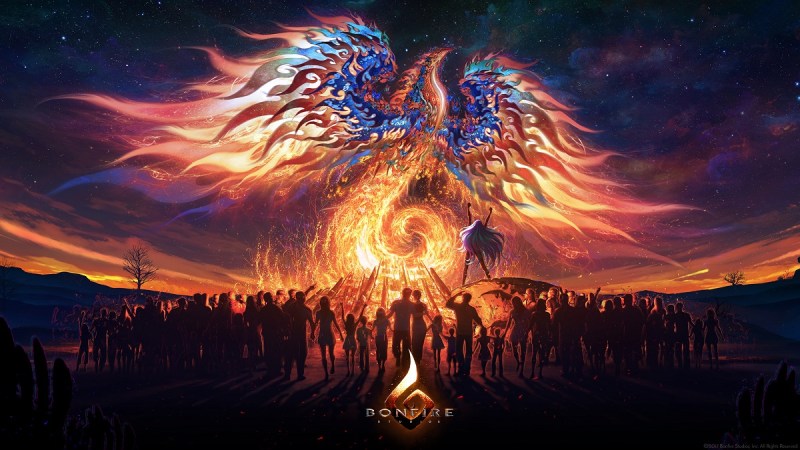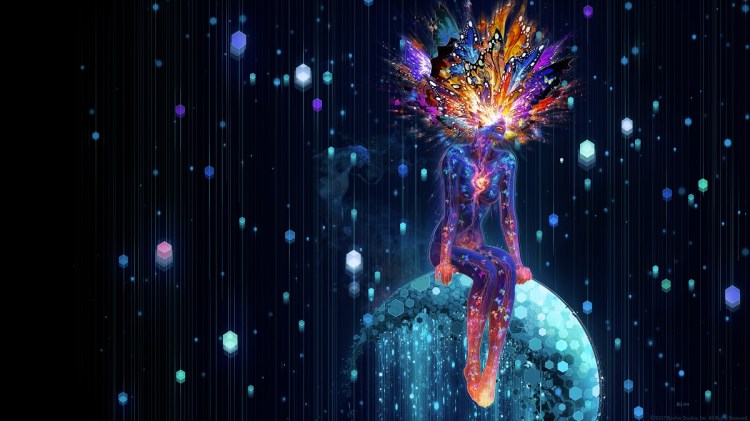
Above: Mask of Dreams.
GamesBeat: I remember the DICE talk where Mike Morhaime talked about that. Had you worked on a lot of those games?
Pardo: Some of them, definitely. Not every one. Again, my history started with StarCraft. There was some stuff I missed in there. Blizzard North had their own list, too. But I think it’s healthy. You look at Supercell recently. They’ve also talked about how they have a very similar philosophy. They’ve definitely killed more games than they’ve shipped.
GamesBeat: That’s one of the only similar companies I’ve seen. I don’t know if there are more than that.
Pardo: There are other companies that are very quality focused. Maybe they don’t talk as much about their philosophies. If I had to guess, I’m sure Valve has had plenty. Maybe they call them experiments rather than games. But I’m sure they’ve had plenty of experiments that haven’t made it out the door.
June 5th: The AI Audit in NYC
Join us next week in NYC to engage with top executive leaders, delving into strategies for auditing AI models to ensure fairness, optimal performance, and ethical compliance across diverse organizations. Secure your attendance for this exclusive invite-only event.
GamesBeat: Was there something that made it go over better when you have to cancel your game? You could get upset and go start your own thing. Or you could stick around and do the next thing. What was that communication like when that happened?
Pardo: Every situation is different. In most situations, it was team driven. It doesn’t generally happen where someone comes from above and says the game’s getting canceled. It usually happens very slowly and organically. It’s often team driven.
GamesBeat: Did you work on Titan? Did you think it should have kept going, or did you feel like it was time to give up as well?
Pardo: Yes, I was definitely involved in Titan. The biggest thing — first of all, I’m not too comfortable talking about Titan because I’m not at Blizzard anymore, and I don’t want to have a bunch of out-of-context quotes anywhere. But the big thing for me, I think the success of Overwatch shows that it was the right decision. That team went through a very long development process, and maybe the idea of what Titan was didn’t make it out the door, but it turned into Overwatch, which has ultimately been very successful. I’m so happy and proud of the team, that they were able to get that game out.
GamesBeat: Do you have advice for people who are making that kind of decision? “My game’s been canceled. Do I move on or stick around?”
Pardo: It’s way too broad and nuanced of a situation to be able to just casually say, “This is what you should do.” It depends on what the future is and what you want to do next. If you think about anything you might do as a solo creator, you’re probably throwing away work every day. It probably happens to you all the time. You write a story, and it doesn’t come out the way you want to. You toss it in the bin and rewrite it. Any sort of creative process, it happens just like that.
Then, you go to a team-based project, and you’re throwing out work along the way. Canceling a game is just throwing away a team’s work that’s gone really far, to the point where now, other people know it’s a full game. You always endeavor to do all the throwaway stuff early and often and before there’s that much work, but sometimes, it gets really far down the line, and you have to start over.
What often happens with the teams that stay together after you make that is that you learn a lot. We always learn a lot more from our failures than our successes. With more than one game inside of Blizzard, and I’m sure in other companies, that team took all those learnings and immediately went out and made a better game. I know Supercell does that. Blizzard does that. If you have a great studio culture, the right answer is to take those learnings and go make an even more awesome game.

Above: Phoenix.
GamesBeat: Is the end result, the shipment itself, not necessarily the object of excellence? It’s something you do before that?
Pardo: It ends up being both. In the case of a product, there is a day when it’s going to ship, and it’s going to be judged forever by people in the press, by the community, by the team itself. I’m sure people are always going to judge the quality at that point. But the theme of my talk, from a personal creator’s point of view, is to be focused on excellence in the process of your daily work. Don’t get too fixated on what happens once it gets judged by the external world.
GamesBeat: How do you feel about players and player feedback? With the internet now, we have a lot of noise that comes at us. There’s a level of toxicity to it. It’s hard to know what to do or who to listen to among all those critics. How do you deal with that in order to keep doing what you do?
Pardo: I’ve definitely had more than a few incidents with arguments on forums or putting my foot in my mouth. But I think fundamentally, you want to be really player focused. You’re trying to make these entertainment experiences that you want to be enjoyed by as many people as you can. That’s why we’re in it, as artists and creators.
More than anything, I love getting player feedback. Obviously, the way the feedback comes across sometimes is not always the friendliest. You’re going to get people that love your game but talk about the flaws in a way that might make you angry. You might have people who just dislike the game, and they’re going to let you know as well.
For me, I’ve done my best over the years to realize that anyone that’s talking about your game, be it good or bad, means they’re passionate about it. You want to be able to listen to that feedback and internalize it and figure out what you’re going to do about it. It doesn’t always mean you’ll act on every piece of feedback, but don’t be offended by it. If anything, take it as a compliment, even if people are saying bad words. Try to be true to the vision of the game you want to make and synthesize that feedback into something useful.
GamesBeat: What if some of that player feedback becomes contradictory? You see conflicts between different groups of gamers, where one group likes the game to be one way that opposes another.
Pardo: Of course. You’re definitely going to have people who say that’s too hard; this is too easy; that’s just right. You have all different constituencies. That’s why you can’t just go where any given player tells you to go. The development team has to have their own vision for who the audience for their game is. They have to have that very clearly in their mind. Here’s what a player of our game looks like. Here’s how difficult they want it. Here’s the type of world they want.
That has to be very clear to the team before you start listening to feedback. Once you know the audience and the game you’re trying to make, then you can listen to feedback and use that feedback to guide you toward that compass heading. If you’re trying to make an extremely difficult game — the point of the game is to be brutally hard — you know that’s what you’re doing. If a novice player tells you the game’s too easy, you know you’re off your heading, and you can correct toward that. But you have to already know what you want to build and who it’s for. Then, you can use all that feedback.

